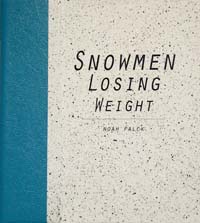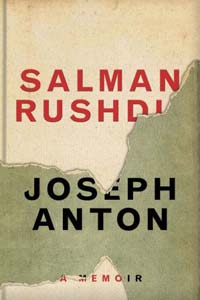 Joseph Anton: A Memoir
Joseph Anton: A Memoir
by Salman Rushdie
Random House, September 2012
656 pages / $18 Buy from Amazon
On the cover of this utterly compelling book, two names belonging to five different individuals introduce the reader to a life abruptly interrupted by politics. First is that of the British author, Salman Rushdie, who deserves praise for the beautiful prose that follows. His surname was adapted by his father from Ibn Rushd, the twelfth century Muslim philosopher whose vein of Islamic scholarship had left its mark on the Rushdie family. Below Rushdie, “Joseph Anton”, a name unknown to history, is inscribed in large letters. This is an invented name which, when taken as a whole, is fictitious, but when separated into two parts, becomes a composite of the first names of Joseph Conrad and Anton Chekov, two of Rushdie’s favorite authors.
Although Joseph Anton is a name invented by the author, the relationship between them is quite different from, say, Oliver Twist and Dickens. The invention here had not been the result of an artistic choice. It was necessitated when Rushdie wrote a novel, in 1989, about the origins of Islam, earning the hatred of Ayatollah Ruhollah Khomeini, the Supreme Leader of Iran.
Khomeini accused Rushdie of blasphemy and issued a fatwa to all Muslims, informing them that the writer of The Satanic Verses as well as “all those involved in its publication who were aware of its content” were sentenced to death. The death of the author, however, had been a wish that was not granted. Rushdie survived and is here to tell the tale. (Others, though, were not as lucky: the Japanese translator of the book was murdered in 1991, the Italian translator was stabbed and his Norwegian publisher attacked at his house.)
Rushdie’s account begins when a BBC reporter calls him to ask how it feels “to know that you have just been sentenced to death by Ayatollah Khomeini?” It doesn’t feel good, he replies before rushing downstairs to lock the front door of his London apartment.
As the reader walks in his shoes in the course of more than 650 densely-written pages, it becomes apparent that Rushdie’s mental state was much more complicated than his initial reaction might suggest. Fatwa becomes for him an elixir, helping Rushdie to identify his friends and his foes. The event also kickstarts a public discussion on blasphemy, religious intolerance and freedom of expression, leading to numerous political stances some of which were taken at the expense of personal safety.
READ MORE >

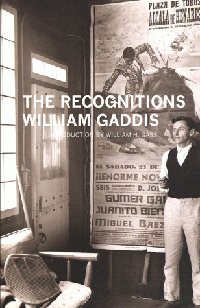 The Recognitions
The Recognitions
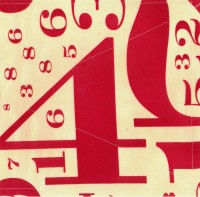
 board: voices from the nervous breakdown
board: voices from the nervous breakdown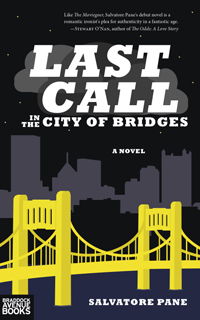 Last Call in the City of Bridges
Last Call in the City of Bridges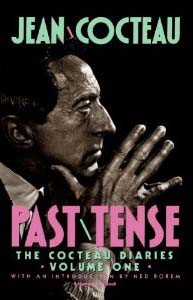 I start out endeavoring to write about those things I know; those authors I know; those films I know; those artists I know, because the chance of publishing something online and the rest of the world instantly knowing more about it than me simply isn’t weighed in my favor, so I want to start with something I know. Obscurity can work in my favor here. Choosing to review, say, Self Portrait by Man Ray will prove far less disputable than another slant on the terrifying depths of the sentences in Infinite Jest; so I may be wise to look to those lesser-discussed works on my bookshelf considering derision isn’t something I enjoy. Furthermore, and aside from obscurity or the arcane, I’m going to want to focus on the personal elements of the topic as opposed to those more general observations ever-present in every other publication on earth. This isn’t a critique of Mad Men for The New Yorker, this isn’t my attempt to reconcile the efforts of Frank Ocean as measured against the palpitations of James Brown, this is something different, and personality shouldn’t hide away at this most pivotal moment in my life as a hack critic postulating endlessly with cheap literary fiction tricks.
I start out endeavoring to write about those things I know; those authors I know; those films I know; those artists I know, because the chance of publishing something online and the rest of the world instantly knowing more about it than me simply isn’t weighed in my favor, so I want to start with something I know. Obscurity can work in my favor here. Choosing to review, say, Self Portrait by Man Ray will prove far less disputable than another slant on the terrifying depths of the sentences in Infinite Jest; so I may be wise to look to those lesser-discussed works on my bookshelf considering derision isn’t something I enjoy. Furthermore, and aside from obscurity or the arcane, I’m going to want to focus on the personal elements of the topic as opposed to those more general observations ever-present in every other publication on earth. This isn’t a critique of Mad Men for The New Yorker, this isn’t my attempt to reconcile the efforts of Frank Ocean as measured against the palpitations of James Brown, this is something different, and personality shouldn’t hide away at this most pivotal moment in my life as a hack critic postulating endlessly with cheap literary fiction tricks.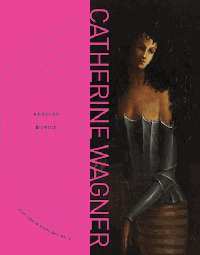 Nervous Device
Nervous Device Joseph Anton: A Memoir
Joseph Anton: A Memoir